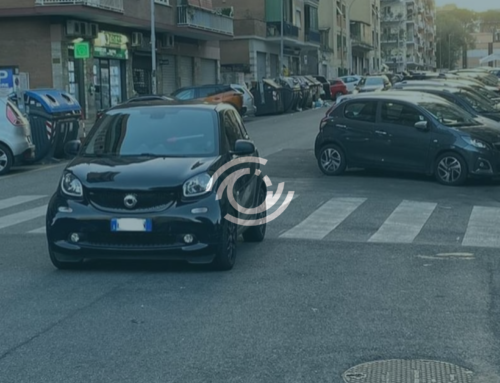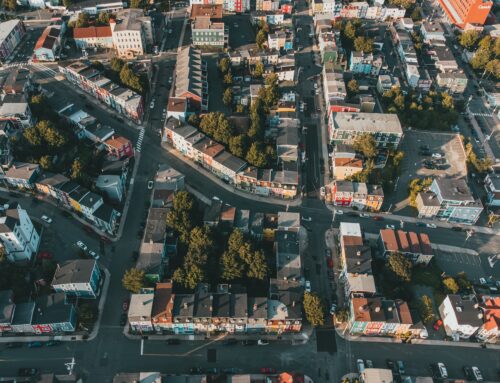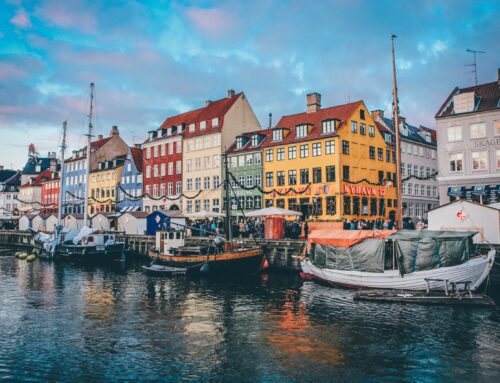Smart City is the only key to Africa’s urbanization
Smart city projects in Africa are marked by difficulties but especially resilience. The country and its people desire to grow.
Smart City is the only key to Africa’s urbanization
Smart city projects in Africa are marked by difficulties but especially resilience. The country and its people desire to grow.
Smart city projects in Africa are marked by difficulties but especially resilience. The country and its people desire to grow.
Why it is time to invest in Africa and in its smart cities
These could be the years of change for the African continent. There are grounds for African cities to evolve and grow through smart city projects.
A smart city, in fact, is a place that integrates digital technologies into its services and infrastructure to become more efficient for inhabitants. Actually, they also play an important role because they directly help shape the city based on their needs.
Why is the smart city therefore the means to foster development on this continent?
To answer this question, we need to know Africa in its current state.
According to the World Population Prospects 2022 report, with 1.4 billion inhabitants, Africa is the second most populous continent in the world. [1] Added to this, its future will be marked by urbanization. Specifically, by 2035, more than half of its population will live in urban cities. [2]
This is worrying considering Africa’s current infrastructure deficits, from health to education fields. In addition, we have to consider that the history of this country has always been very particular. It is related to the relationship the world has engaged with it.
Now, it is finally time to put in place the measures that can promote the development of African smart cities. It is therefore essential to implement financial operations, such as investments. These, in fact, will enable Africa’s economic expansion and over time will result in an increase in collective welfare.
Not surprisingly, the 2030 Agenda calls for 10 trillion U.S. dollars to be used only for developing countries.
In addition, climate change, which particularly affects the developing countries, is an enabling factor for Africa to facilitate financing to meet sustainability goals.
In conclusion, African country growth will depend on the right institutional and infrastructure investments. The challenge is to make African cities more resilient, inclusive and safe. The smart city model meets these needs and will enable Africa’s prosperity.
26 projects are underway in South Africa: the case of Nkuna Smart city
Multiple African cities are implementing technologies and solutions based on data collection to address the consequences of rapid urbanization and overpopulation. One nation is standing out among all others, namely South Africa with its 26 major projects underway.
The issue of investment is central to their implementation. Let’s find out why.
Nedbank bank conducted an analysis of the context in which these 26 projects are being implemented.
According to the bank, 2022 saw a moderation in fixed investment activity in the country due to local and national unrest. In detail, the value of projects announced during the year decreased to 248.5 billion rand from 392.7 billion rand.
The year 2023 will still see a slowdown in investors for capital projects. The causes are related to electricity shortages, slowing global and local demand, and so on.
There is, however, a silver lining to this situation.
According to the banking group, while spending on capital projects is expected to slow down in 2023, investment activity by private companies is beginning to pick up after the 2020 stop.
One example of this recovery is undoubtedly Nkuna Smart City. This project, currently underway, will be completed by June 2024.

Nkuna City is located in the northern province of South Africa. This smart city will consist of facilities for industries, commercial and residential centers, hotels, medical facilities, sports facilities and many more.
It will create employment because of the many jobs available, thus strengthening local economies.
What sets this project is at its roots. Compared to others, indeed, the development of Nkuna smart city may be the first project of its kind to be led by a compatriot entrepreneur without the involvement of foreign investors. [3]
Existing African smart cities: Cape Town and Nairobi
Beyond future projects that we hope will be successfully completed, Africa already boasts some important smart cities. Among the most prominent are Cape Town, South Africa, and Nairobi, Kenya.
Two cities that are distant from each other but have many aspects in common, especially that of collected data management.
Let’s first discover Cape Town smart city.

Cape Town is considered one of the smartest cities in Africa because of its open data portal. Through this, all data recorded in the city is made publicly available to its citizens.
In detail, through sensors installed in major cities, municipalities collect real-time data on water meters, dumpsters, traffic lights and streetlights.
The benefits of this real-time data include traffic management, as travelers are always and immediately informed about congestion in the city. Subsequently it is useful in helping law enforcement to manage crime. This is made possible by sensors, which detect and alert on gunshots. Another key aspect of real-time data delivery also relates to the management of emergencies, such as fire and rescue, enabling prompt action by law enforcement. [4]
What about Nairobi?

The smart city in this case is about Konza Techno City, 60 kilometers from downtown Nairobi. It is a project that is being developed but has dubbed the city the Silicon Savannah.
The city will collect data from smart devices and sensors, enabling optimization of traffic and infrastructure, while also improving citizen participation. Konza City will be home to numerous technology companies, hospitals, schools and a university campus.
According to its plan, the people of Konza will have direct access to collected data, including traffic maps, emergency alerts, and energy and water consumption. [5]
These two African cities have led the way toward a smarter future for the continent. They have, in fact, taken inspiration for their projects from the smart city par excellence-Singapore.
In the future, will other African cities in turn take their cues from Nairobi and Cape Town? We shall see.
References:
-
-
- Onu. Online version: https://www.un.org/development/desa/pd/sites/www.un.org.development.desa.pd/files/wpp2022_summary_of_results.pdf
- Institute for Security studies. Online version: https://issafrica.org/iss-today/africas-future-is-urban
- Nedbank. Online version: https://www.nedbank.co.za/content/dam/nedbank/site-assets/AboutUs/Economics_Unit/Research/EconomicResearch/Nedbank%20Capital%20Expenditure%20Project%20Listing%20H1%202022.pdf
- Republic of South Africa. Online version: https://www.cogta.gov.za/cgta_2016/wp-content/uploads/2023/01/Annexure-A-DCoG_Smart-Cities-Framework.pdf
- Konza Technopolis. Online version. https://konza.go.ke/smart-city/
-
© Copyright 2012 – 2023 | All Rights Reserved
Author: Rossana Cascione, Digital Marketing Specialist
Smart city projects in Africa are marked by difficulties but especially resilience.The country and its people desire to grow.
Why it is time to invest in Africa and in its smart cities
These could be the years of change for the African continent. There are grounds for African cities to evolve and grow through smart city projects.
A smart city, in fact, is a place that integrates digital technologies into its services and infrastructure to become more efficient for inhabitants. Actually, they also play an important role because they directly help shape the city based on their needs.
Why is the smart city therefore the means to foster development on this continent?
To answer this question, we need to know Africa in its current state.
According to the World Population Prospects 2022 report, with 1.4 billion inhabitants, Africa is the second most populous continent in the world. [1] Added to this, its future will be marked by urbanization. Specifically, by 2035, more than half of its population will live in urban cities. [2]
This is worrying considering Africa’s current infrastructure deficits, from health to education fields. In addition, we have to consider that the history of this country has always been very particular. It is related to the relationship the world has engaged with it.
Now, it is finally time to put in place the measures that can promote the development of African smart cities. It is therefore essential to implement financial operations, such as investments. These, in fact, will enable Africa’s economic expansion and over time will result in an increase in collective welfare.
Not surprisingly, the 2030 Agenda calls for 10 trillion U.S. dollars to be used only for developing countries.
In addition, climate change, which particularly affects the developing countries, is an enabling factor for Africa to facilitate financing to meet sustainability goals.
In conclusion, African country growth will depend on the right institutional and infrastructure investments. The challenge is to make African cities more resilient, inclusive and safe. The smart city model meets these needs and will enable Africa’s prosperity.
26 projects are underway in South Africa: the case of Nkuna Smart city
Multiple African cities are implementing technologies and solutions based on data collection to address the consequences of rapid urbanization and overpopulation. One nation is standing out among all others, namely South Africa with its 26 major projects underway.
The issue of investment is central to their implementation. Let’s find out why.
Nedbank bank conducted an analysis of the context in which these 26 projects are being implemented.
According to the bank, 2022 saw a moderation in fixed investment activity in the country due to local and national unrest. In detail, the value of projects announced during the year decreased to 248.5 billion rand from 392.7 billion rand.
The year 2023 will still see a slowdown in investors for capital projects. The causes are related to electricity shortages, slowing global and local demand, and so on.
There is, however, a silver lining to this situation.
According to the banking group, while spending on capital projects is expected to slow down in 2023, investment activity by private companies is beginning to pick up after the 2020 stop.
One example of this recovery is undoubtedly Nkuna Smart City. This project, currently underway, will be completed by June 2024.

Nkuna City is located in the northern province of South Africa. This smart city will consist of facilities for industries, commercial and residential centers, hotels, medical facilities, sports facilities and many more.
It will create employment because of the many jobs available, thus strengthening local economies.
What sets this project is at its roots. Compared to others, indeed, the development of Nkuna smart city may be the first project of its kind to be led by a compatriot entrepreneur without the involvement of foreign investors. [3]
Existing African smart cities: Cape Town and Nairobi
Beyond future projects that we hope will be successfully completed, Africa already boasts some important smart cities. Among the most prominent are Cape Town, South Africa, and Nairobi, Kenya.
Two cities that are distant from each other but have many aspects in common, especially that of collected data management. Let’s first discover Cape Town smart city.

Cape Town is considered one of the smartest cities in Africa because of its open data portal. Through this, all data recorded in the city is made publicly available to its citizens.
In detail, through sensors installed in major cities, municipalities collect real-time data on water meters, dumpsters, traffic lights and streetlights.
The benefits of this real-time data include traffic management, as travelers are always and immediately informed about congestion in the city. Subsequently it is useful in helping law enforcement to manage crime. This is made possible by sensors, which detect and alert on gunshots. Another key aspect of real-time data delivery also relates to the management of emergencies, such as fire and rescue, enabling prompt action by law enforcement. [4]
What about Nairobi?

The smart city in this case is about Konza Techno City, 60 kilometers from downtown Nairobi. It is a project that is being developed but has dubbed the city the Silicon Savannah.
The city will collect data from smart devices and sensors, enabling optimization of traffic and infrastructure, while also improving citizen participation. Konza City will be home to numerous technology companies, hospitals, schools and a university campus.
According to its plan, the people of Konza will have direct access to collected data, including traffic maps, emergency alerts, and energy and water consumption. [5]
These two African cities have led the way toward a smarter future for the continent. They have, in fact, taken inspiration for their projects from the smart city par excellence-Singapore.
In the future, will other African cities in turn take their cues from Nairobi and Cape Town? We shall see.
References:
-
-
- Onu. Online version: https://www.un.org/development/desa/pd/sites/www.un.org.development.desa.pd/files/wpp2022_summary_of_results.pdf
- Institute for Security studies. Online version: https://issafrica.org/iss-today/africas-future-is-urban
- Nedbank. Online version: https://www.nedbank.co.za/content/dam/nedbank/site-assets/AboutUs/Economics_Unit/Research/EconomicResearch/Nedbank%20Capital%20Expenditure%20Project%20Listing%20H1%202022.pdf
- Republic of South Africa. Online version: https://www.cogta.gov.za/cgta_2016/wp-content/uploads/2023/01/Annexure-A-DCoG_Smart-Cities-Framework.pdf
- Konza Technopolis. Online version. https://konza.go.ke/smart-city/
-
© Copyright 2012 – 2023 | All Rights Reserved
Author: Rossana Cascione, Digital Marketing Specialist













I like this post, enjoyed this one thanks for putting up.